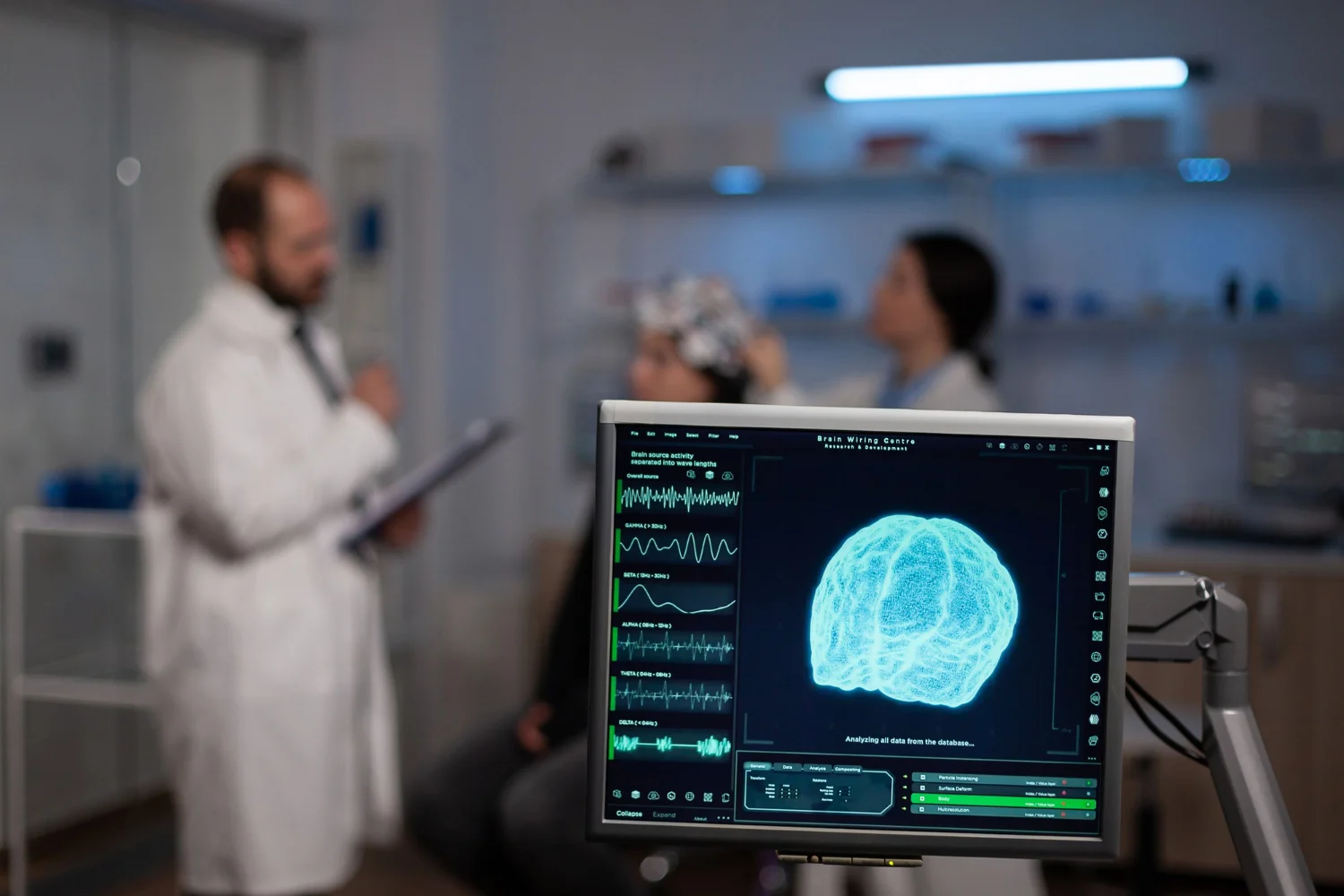What Is Stomach Cancer?
Category: General medicine
Stomach cancer, also known as gastric cancer, is a serious medical condition that arises when abnormal cells form in the lining of the stomach. It often develops slowly and may go unnoticed in its early stages, making timely diagnosis and treatment crucial. Understanding the risk factors, symptoms, and treatment options is essential for better outcomes.
At Lokmanya Hospitals, recognized as one of the best hospitals for cancer care, we specialize in providing advanced diagnostics and comprehensive treatment for stomach cancer. Our expert oncology team uses state-of-the-art technology to ensure accurate diagnosis and personalized treatment plans tailored to each patient's needs. When it comes to stomach cancer, early intervention can save lives — and Lokmanya Hospitals stands by you every step of the way.
What Is Stomach Cancer?
Stomach cancer occurs when malignant (cancerous) cells develop in the stomach lining, forming tumors that can grow and spread to other parts of the body. The most common type of stomach cancer is adenocarcinoma, which begins in the glandular cells lining the stomach. Other less common types include lymphoma, gastrointestinal stromal tumors (GISTs), and carcinoid tumors.
What Causes Stomach Cancer?
Understanding why stomach cancer develops helps in identifying risks and preventive strategies. The exact cause is not always clear, but several factors increase the likelihood of developing this cancer:
1. Helicobacter pylori Infection
Chronic infection with H. pylori bacteria is a major risk factor. It causes inflammation and ulcers in the stomach lining, increasing cancer risk over time.
2. Diet and Lifestyle
Consuming a diet high in smoked, pickled, salty, or processed foods can increase stomach cancer risk. Low intake of fresh fruits and vegetables also contributes. Smoking and excessive alcohol use are additional risk factors.
3. Genetics and Family History
A family history of stomach cancer or certain inherited conditions may increase susceptibility.
4. Chronic Gastritis and Stomach Polyps
Long-term inflammation or benign growths in the stomach lining may lead to malignant transformation.
5. Age and Gender
Stomach cancer is more common in people over 50 and affects men more frequently than women.
What Are the Symptoms of Stomach Cancer?
Stomach cancer often develops slowly, and early symptoms may be mild or mistaken for common digestive issues. Common signs and symptoms include:
- Persistent indigestion or heartburn
- Abdominal pain or discomfort, especially in the upper abdomen
- Nausea and vomiting
- Loss of appetite and unexplained weight loss
- Feeling full quickly after eating small meal
- Difficulty swallowing or feeling of food getting stuck
- Blood in vomit or stool (may appear black or tarry)
- Fatigue or weakness due to anemia
If you experience these symptoms persistently, especially if you have risk factors, it is essential to seek medical advice promptly.
How Is Stomach Cancer Diagnosed?
Accurate diagnosis is vital for effective treatment. At Lokmanya Hospitals, we utilize advanced diagnostic tools to detect stomach cancer early:
- Endoscopy: A thin, flexible tube with a camera is inserted into the stomach to examine the lining and take biopsy samples.
- Biopsy: Tissue samples are analyzed under a microscope to confirm cancer presence and type.
- Imaging tests: CT scans, PET scans, and endoscopic ultrasound help assess tumor size, location, and spread.
- Blood tests: To check overall health and detect markers that may indicate cancer.
What Are the Treatment Options for Stomach Cancer?
Treatment depends on the cancer’s stage, location, and patient health. Lokmanya Hospitals offers a multidisciplinary approach to stomach cancer treatment:
1. Surgery
Surgical removal of the tumor is the most common treatment for early-stage stomach cancer. Partial or total gastrectomy (removal of part or all of the stomach) may be performed depending on the tumor extent.
2. Chemotherapy
Use of drugs to kill cancer cells either before surgery (neoadjuvant) to shrink tumors or after surgery (adjuvant) to destroy remaining cells.
3. Radiation Therapy
High-energy rays are used to target and destroy cancer cells, often combined with chemotherapy.
4. Targeted Therapy and Immunotherapy
Newer treatments that focus on specific cancer cell markers or help the immune system attack cancer.
When Should You See a Doctor?
If you have persistent symptoms such as stomach pain, unexplained weight loss, or blood in vomit/stool, or if you belong to a high-risk group, consult a specialist immediately. Early diagnosis improves the chances of successful treatment.
Why Choose Lokmanya Hospitals for Stomach Cancer Care?
Lokmanya Hospitals is recognized as one of the best hospitals for cancer treatment, including stomach cancer. Our expert oncologists, gastroenterologists, and surgeons work together to create personalized treatment plans using the latest technology. We prioritize compassionate care and comprehensive support for patients and their families.
Our hospital is equipped with advanced diagnostic and treatment facilities, ensuring patients receive precise and effective care. Choosing Lokmanya means trusting a team committed to delivering the highest standards in cancer care with a focus on improving patient outcomes.
Conclusion
Stomach cancer is a serious condition that requires timely diagnosis and expert treatment. Being aware of the risk factors and symptoms can help in early detection. At Lokmanya Hospitals, we provide comprehensive cancer care combining advanced diagnostics, personalized treatment plans, and compassionate support.
If you or your loved ones experience any symptoms or have risk factors for stomach cancer, do not delay consulting the experts at Lokmanya Hospitals, recognized among the best hospitals for cancer care. Your health and well-being are our utmost priority.
Frequently Asked Questions (FAQs)
1. What causes stomach cancer?
Stomach cancer is mainly caused by H. pylori infection, poor diet, smoking, genetics, and chronic stomach conditions.
2. What are the early signs of stomach cancer?
Early symptoms include indigestion, abdominal pain, nausea, loss of appetite, and unexplained weight loss.
3. When should I get screened for stomach cancer?
Screening is advised if you have persistent symptoms, a family history of stomach cancer, or risk factors like chronic H. pylori infection.
4. Can stomach cancer be cured?
Early-stage stomach cancer can often be cured with surgery and adjunct treatments. Advanced cases may require more intensive therapy.
5. How is stomach cancer diagnosed?
Diagnosis involves endoscopy with biopsy, imaging tests like CT scans, and blood tests.
Previous blog

What Is Brain Tumor?
Next blog






